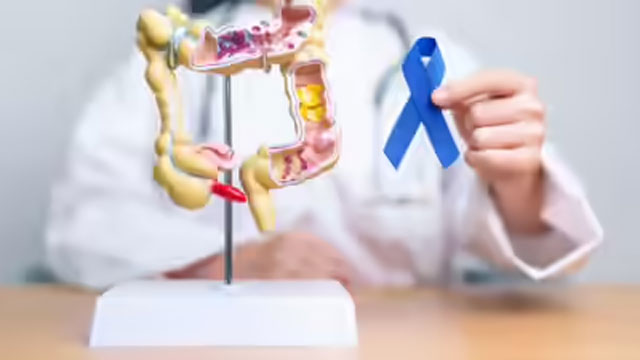Daijiworld Media Network- Mumbai
Mumbai, Aug 22: Colorectal cancer, one of the world’s leading cancers, is more common than many realise. According to the World Health Organization (WHO), it accounts for nearly 10% of all cancer cases globally and is the second leading cause of cancer-related deaths. In men, it ranks as the second most frequent cancer, while in women it is the third most common.
A recent comprehensive study published in April 2025 under the title “Vitamin D and Colorectal Cancer Prevention: Immunological Mechanisms, Inflammatory Pathways, and Nutritional Implications” has shed new light on how Vitamin D – often called the sunshine vitamin – could play a vital role in lowering the risk of this deadly disease.

The researchers evaluated over 10,000 studies, narrowing them down to 50 that directly examined the link between Vitamin D levels and colorectal cancer. Participants included adults with either colorectal cancer, precancerous conditions, or Vitamin D deficiency, with some receiving Vitamin D supplements.
The Role of Vitamin D
Vitamin D is not only crucial for bone health but also for nerve communication, regulating blood pressure, supporting gut health, and protecting against infections. Importantly, it has been found to slow uncontrolled cell growth, block angiogenesis (the formation of blood vessels that feed tumours), and encourage apoptosis, the natural death of abnormal cells.
One striking finding from the meta-analysis of 31 studies revealed that those with the highest Vitamin D levels (around 80 ng/mL) had a 25% lower risk of developing colorectal cancer compared to those with the lowest levels (10 ng/mL).
Further, the well-known Nurses’ Health Study showed that women with the highest Vitamin D intake were 58% less likely to develop colorectal cancer compared to those with lower levels.
Limitations and Need for More Research
While the benefits of Vitamin D appear promising, scientists caution that the exact biological mechanisms remain unclear. The review stressed the need for more large-scale randomised trials to confirm the effectiveness of Vitamin D in cancer prevention.
Should You Take Supplements?
Experts advise against blindly self-dosing. A simple blood test can determine Vitamin D levels and help doctors recommend the right supplements or dietary changes if required. Foods rich in Vitamin D and safe sun exposure can also help maintain healthy levels.
Other Risk Factors
Apart from Vitamin D deficiency, several factors increase the risk of colorectal cancer, including older age, lack of physical activity, obesity, a low-fiber diet, and high intake of processed meats. Addressing these, alongside maintaining optimal Vitamin D levels, can significantly reduce overall risk.
Doctors emphasise that “prevention is better than cure”, and a personalised approach under medical guidance is the safest way forward.